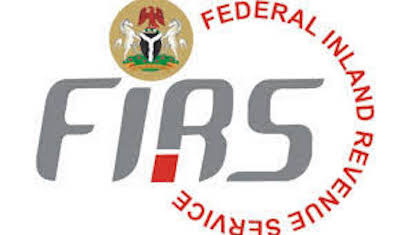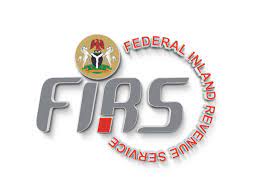BUSINESS
FIRS Sensitises Traders on Tax Payment

The Federal Inland Revenue Service (FIRS) has reiterated the importance of tax to growth and development at a sensitisation and awareness workshop held for Alaba/Badagry tax jurisdiction and environs.
The programme organised by The Alaba Micro and Small Tax Office of the FIRS aimed to promote voluntary tax compliance, necessary for the optimization of tax revenue collection in the environment.
Speaking, Executive Chairman Federal Inland Revenue Service (FIRS), Muhammad Nami stressed that the minimum that is required of citizens is to pay their taxes promptly and correctly.
He noted that the workshop, themed, “Tax Payers Education: Voluntary Compliance for Improved Revenue Generation”, was apt to enlighten the public on topical issues on taxation and further intimate them on the roles of the service.
He said, “Taxes are legal and civic obligations of citizens and paying such enables one to be a contributor to national development.
“Last year, FIRS collected N6.4 trillion, the highest in the history of tax collection in Nigeria. As of July 2022, we collected N5.2 trillion and we are on course to surpass the collections of 2021. We thus need your support and cooperation in this regard, without this we won’t be able to reach the heights that we intend to, and this will impact on the amount of revenue available to governments at all levels to finance their budgetary provisions.”
On her part, Tax controller of Alaba Micro and Small Tax Office, Cecilia Odibo: “It is no longer news that oil and gas revenue has dwindled and the most reliable source of revenue is now from taxation of non-oil sectors. We should thus focus on how we can play our part to generate non-oil revenues that will sustain the economy.”
Group Lead, General Tax Operations Group, FIRS, Kabbi Abba told attendees not to be ignorant of their rights and obligations as taxpayers.
He said, “Taxpayers have a right to seek for clarification on any tax laws from revenue agency, they are not expected to pay more than is required by the tax laws and their incomes and they have the right to be issued tax clearance certificate upon settlement of all tax liabilities within two weeks of application or be given reasons for non-issuance.
“Moreso, taxpayer is under obligation to charge, deduct, collect and remit VAT, WHT, and PAYE as an entity or institution with agency role under the tax laws. They are under obligation to pay their tax without being reminded, coerced or prompted, on or before the due dates. For any taxpayer, voluntary disclosure is critical.”
BUSINESS
Small Business Owners Lament High Cost of Doing Business

Some business owners in the Federal capital Territory (FCT), have expressed concern over the high cost of doing business presently.
According to them, they are also experiencing low patronage as many residents can no longer pay for goods and services like before.
The business owners said on Wednesday in Abuja, that the cost of doing business was making life extremely difficult for them.
They said increased transportation, cost of living, inflation, and weakened purchasing power were some of the challenges affecting their businesses.
At the Apo Fish Market, Agnes Nwafor, a foodstuff dealer, said the current economic situation had dampened the usual weekend buzz.
“People who usually come to my shop to do bulk purchases no longer do that anymore. People now buy goods per time depending on their needs.
”So many others who come around enquire about the prices of the items and end up not picking anything,” she said.
Sani Abdul, a vegetable seller at the Apo market said he had cultivated the attitude of selling almost below his cost price just to turn-over and attract more customers.
He lamented that most of his customers now purchased things on credit paying up in two or three installments depending on the amount.
”With the low influx of customers to the market today, one will think that this is not even weekend.
“Some of my co-traders in the market sell a dust bin basket of tomatoes for between N10,000 and N12,000 but I sell for N9,500, just to attract customers.
“Most customers who come to the shop either want the price of the items slashed or want to buy the product on credit and I do not blame them,” he said.
He urged the government to come to the aid of citizens and find a lasting solution to the increasing cost of doing business in the country.
Ekaite Obong, who runs a restaurant at the Gudu market area, also decried high cost of doing business and poor sales.
Obong said:” it seems like the sales keep dropping every day, every week and every month. We are not making sales anymore due to high cost of products.
”Purchasing some food items now is like acquiring gold. Even items which the price ordinarily is supposed to decrease due to its season of cultivation have not declined.
“Thus, making the cost of food high, because we have infused a little profit to our sales. So I do not blame the customers who don’t turn out in mass at all.”
Obong urged the government to tackle inflation and strengthen the naira to reduce the cost of imported goods.
“We also need policies that help local farmers and producers too. If food items are affordable, cost of food will reduce and I am sure we will get more patronage,” she said.
Similarly, Chinedu Umeh, who runs a fabric store said the situation in the country had affected both his wholesale and retail business.
“The economy is biting hard, cost of transportation is killing our businesses. The government really needs to look into this area and find a lasting solution,” he said.
Umeh suggested tax relief for small businesses and better access to credit financing to help cushion the impact of reduced sales.
“Small businesses are the engine of the economy, but we are sinking. Government must listen to us, and come to our aid,” he said.
Owoicho Ameh, who owns a farm along airport road, also decried the high cost of doing business and low sales.
Ameh said: “it is no longer business as usual for us these days as the cost of chicken feed, electricity and even transport is challenging our business.
“We struggle with these factors even with our little resources, yet, at the point of sale, customers are either not willing or able to buy.
“This is because, when we factor in our cost of production, it leads to increased cost of the birds, making many customers not able to afford it.”
Ameh said on several occasions, he sold his birds at giveaway prices, just to make sales and get funds to take care of family responsibilities.
He lamented that if he continued in that manner, he may likely go out of business in the nearest future and become jobless.
“The government sincerely needs to take urgent steps to improve the economic climate, improve infrastructure and boost the people’s confidence.
“If this is not given immediate attention, the rate of suicides is bound to increase in the country and the number of jobless citizens will increase,” Ameh said.
BUSINESS
FG Inaugurates CNG Buses to Boost Staff Welfare

The Federal Government has reiterated its commitment to institutional performance and staff welfare with the inauguration of Compressed Natural Gas (CNG) buses at the Federal Ministry of Finance in Abuja
This was contained in a statement by the Director, Information and Public Relations of the ministry, Mohammed Manga.
Meanwhile, the Minister of Finance and Coordinating Minister of the Economy, Wale Edun, while inaugurating the buses, announced the reintroduction of essential provisions for the staff.
Edun described the move as part of a broader push to energise the ministry’s workforce and improve operational efficiency.
He said that the ministry’s internal strength was vital to delivering Nigeria’s broader economic reform agenda.
“This ministry is the engine room of national transformation and that engine must be well-fuelled,’’ he said.
He said that the buses were acquired under the presidential initiative on CNG, which intends to ease staff transportation while advancing the country’s shift to cleaner, cheaper energy sources.
The minister said that the initiative aligned with the ministry’s values of fiscal prudence, transparency and environmental responsibility.
Edun underscored the critical role of staff welfare in delivering Nigeria’s economic reform agenda.
He announced the revival of monthly welfare provisions to staff, a practical gesture aimed at fostering morale and stability as the ministry leads the charge on macroeconomic reform.
The Permanent Secretary of the Ministry, Lydia Jafiya, urged the staff to remain committed, disciplined and professional as the ministry continues to steer the country through a period of economic transition.
“As the country pursues tough but necessary policy shifts ranging from treasury digitalisation to market stabilisation, the ministry’s internal unity and external credibility remain pivotal to achieving inclusive growth and restoring investor confidence,” she said.
Jafiya also commended the minister’s leadership and hard work.
The Chairman of the Presidential Initiative on CNG, Ismaeel Ahmed, reiterated the programme’s mission to mainstream cleaner transport across government institutions and stimulate local industrial value chains.
| ReplyReply allForwardAdd reaction |
BUSINESS
FCCPC Warns Traders against Price Inflation, Substandard Goods

The Federal Competition and Consumer Protection Commission (FCCPC) has issued warning to traders across Lagos State to cease artificial price inflation and ensure the authenticity and safety of their goods.
The Executive Vice Chairman and Chief Executive Officer of FCCPC, Tunji Bello gave the directive at a Market Engagement Forum organised by the commission in Lagos.
Bello, represented by Bridget Etim, Principal Consumer and Business Education Officer, FCCPC, underscored the commitment of the commission to fostering fair competition and safeguarding consumer rights, as enshrined in the Federal Competition and Consumer Protection Act (FCCPA) 2018.
He reminded all businesses, irrespective of their scale or operational setting that they are subject to the provisions of this law.
Bello said that findings from recent FCCPC operations included the discovery of expired rice re-bagged and sold as premium brands at Daleko Market.
He condemned such “wrong and illegal” practices, emphasising the inherent risks to public health and the damage inflicted on the reputation of honest traders.
FCCPC’s intensified engagement extended to major markets in Lagos, namely Mile 12 and Alaba.
At Mile 12, Lagos’s largest food hub, the commission tackled issues of tampered scales, under-weighing, the repackaging of spoilt produce, and suspected price-fixing of essential staples like rice, pepper, and yam.
Similarly, at Alaba International Market, a prominent electronics hub, the FCCPC addressed concerns related to the sale of counterfeit appliances, misleadingly labeled “Tokunbo” (fairly used) goods.
Others include false warranty claims, and coordinated price-fixing of electronics such as televisions, generators and phones.
“These are not minor issues. They affect household income, endanger consumer safety, and erode public trust.
“They violate key provisions of the FCCPA 2018, which prohibit deceptive practices and unfair pricing,” the FCCPC boss said.
He stressed that such violations not only harm the integrity of the market but also disadvantage honest traders who adhere to ethical practices.
While acknowledging the pressures faced by traders, including rising operational costs, Bello reiterated the FCCPC’s dual mandate: consumer protection and the amplification of genuine business concerns to relevant agencies.
He called for a collaborative approach with market leaders to establish new standards of integrity, where fair competition thrives and consumers can shop with confidence.
Bello urged traders to always ensure honesty and respect in their dealings with customers, to promptly address consumer concerns and complaints.
According to him, FCCPC is optimistic that this renewed engagement will lead to a shared vision with market associations to eradicate all forms of abusive and deceptive practices.
Speaking at the forum in Mile 12, Alhaji Shehu Jibril, Chairman, Mile 12 Market, that farmer security is critical for national food security and for them to be able to cultivate and harvest without facing ransom threats.
He called for investment in Compressed Natural Gas (CNG) trucks dedicated to transporting perishable items, noting that using the same trucks for chemicals and food is unsafe and harmful.
Jibril stated that the excessive cost of over N150,000 to transport goods from Kano to Lagos, driven by multiple taxes, severely impedes the movement of goods.
He appealed for government grants to support struggling traders, especially in large markets like Mile 12 Market, noting that most traders lack capital and need funding to sustain food supply chains.
Also, Chief Camilus Amajuoyi, Chairman, Alaba International Amalgamated Council of Sections, expressed the market’s readiness to work with the FCCPC, stressing the association’s commitment to stop selling bad goods but promote honest business.
Amajuoyi, who also heads the International Market Association Electronics, noted past engagements with FCCPC, where similar agreement and understanding with the CPC brought good results.
Also, the President-General of Alaba Council said traders in Alaba do not sell fake product no but highlighted a shift in the market where members were focusing on Nigerian brands, made locally.
“Most products here are indigenous. We are selling our own branded goods now,” he explained.
Amajuoyi denied claims of fake goods in Alaba.
“We are not selling fakes. Although, some of us stopped selling foreign products,” he added.
Amajuoyi insisted the market would help the FCCPC, saying, “The executive will find and catch those selling bad products.
“Such illegal acts hurt Alaba’s name. “We are ready to partner with you. We will help find those who subsidise originals.”






















